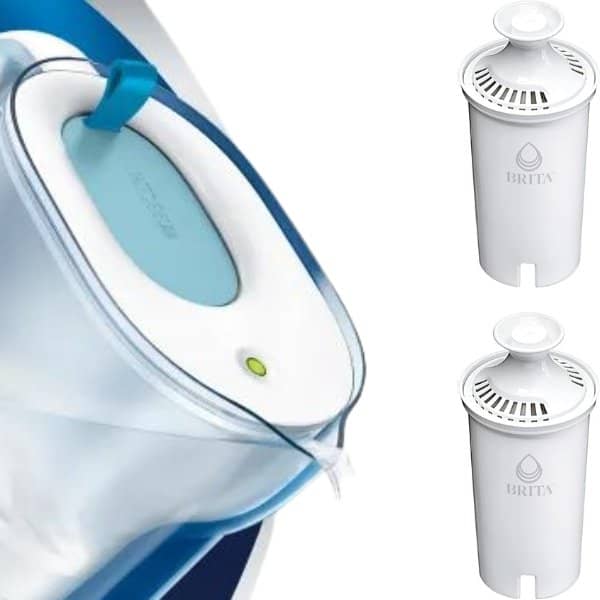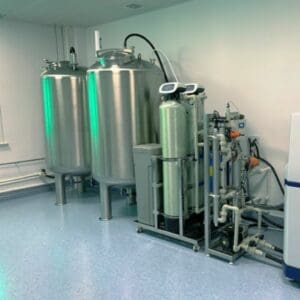The Lifespan of Brita Filters?
Brita Filters are a convenient and environmentally friendly way to purify water. Not only do they reduce the amount of plastic waste, but they also make tap water taste better. To know more about Brita filters and select the right option for your home, you can go through this list of best water pitcher here.
Knowing how long your Brita Filter can last is essential for those looking to save money, time, and energy regarding their drinking water. The lifespan of your Brita filter depends on the type you purchase and how often you use it. Factors such as the quality of source water and water usage may affect the performance and filter life.
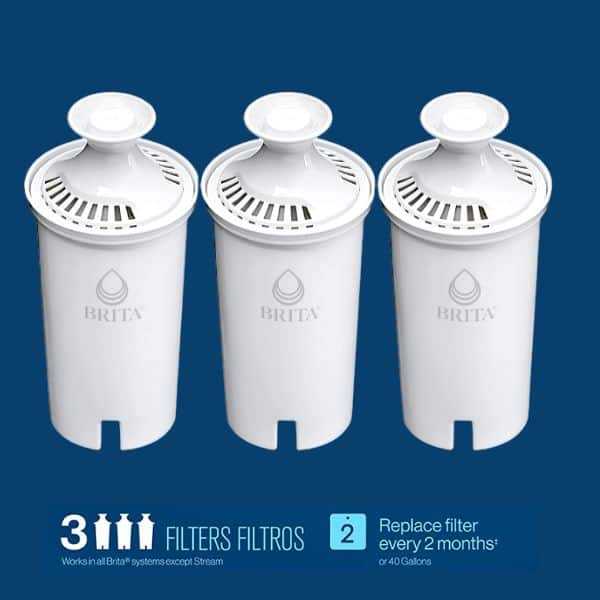
The following guide will help you decide when to replace your Brita filters.
Standard Filters
Brita standard filters are a great way to improve the taste and quality of your drinking water. They help to reduce common water impurities, such as chlorine, copper, zinc, and cadmium, from your tap water. But how long do these filters last?
Brita recommends replacing their standard water filters after 40 gallons or every two months. This time frame depends on factors such as the amount of water being filtered and the level of contaminants in the source water.
Generally speaking, two months is considered a safe timeframe for filter replacement when using a Brita Standard Filter; however, you may want to consider replacing sooner if you’re water usage is high or if you have particularly hard tap water.
Elite Filters
Brita Elite filters are top-of-the-line water filtration systems from Brita, a leader in affordable and reliable solutions. The filters are designed to last up to six months and you can filter up to 120 gallons of water before needing a replacement.
To ensure you’re getting the best possible filtration results with your Brita Elite Filter, keep a regular schedule for replacing it. This will ensure that harmful contaminants like lead, chlorine and other impurities are removed from your drinking water while keeping the taste fresh and crisp.
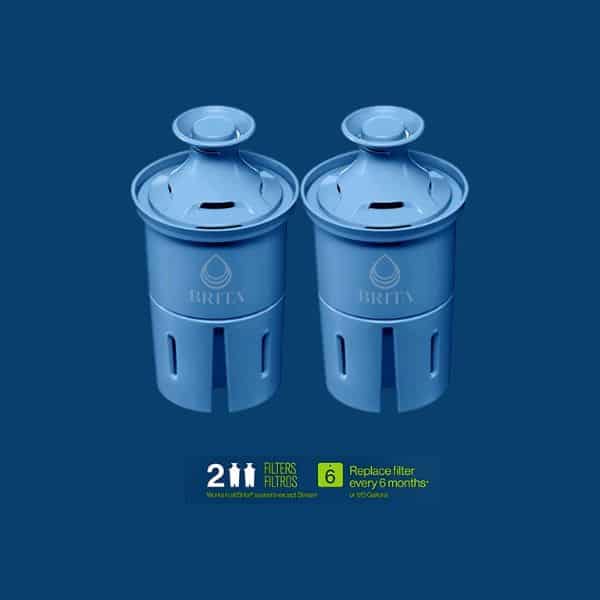
Stream Filters
Brita recommends replacing its Stream filter every 40 gallons or every two months, whichever comes first. Changing the Brita Stream filter will ensure you have the best-tasting fresh filter water and optimal filtration performance.
Regardless of filter type, it’s important to regularly check your electronic filter change indicator, which can be found on most models; this will help ensure you’re getting the best quality filtration possible with your device.
Factors That Affect Brita Filter Life
Brita water filters are a popular choice for filtering tap water; however, a variety of factors can affect the life of your Brita water filter. From the frequency of use to temperature to water pressure, understanding these factors can help you get the most out of your filter and ensure that you always have clean, filtered water available.
Quality of source water
The quality of your source water can significantly impact the life of your Brita filter. For example, tough water can leave deposits and residue in the filter, reducing its ability to remove contaminants effectively. If your source water is high in organic material, chemicals, or minerals, these can all affect the life of your filter.
Water usage
If you’re using a large amount of water per day, you can expect to use more filters. This is because the Brita filter cartridge will need to be replaced more often to ensure it continues removing contaminants from your water supply.
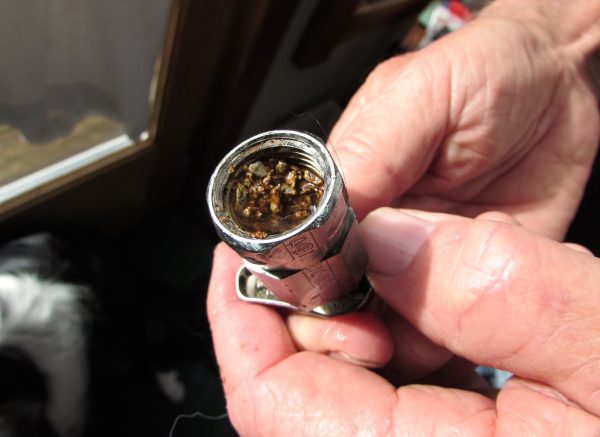
Signs That Your Brita Filter Needs Replacing Even Before the End of Its Life
When it comes to staying healthy and hydrated, having access to clean filtered water is essential. While there are many options for water filters in the market today, comparing Zerowater vs. Brita filters can help you decide which one is right for you. However, if you’re using a Brita filter, you should not assume that your water will remain safe and clean until the end of its life. Brita’s filter needs replacing before it’s time for a new one.
Bad-tasting water
If you’ve recently noticed that your tap water doesn’t taste as great as it used to, it could be a sign that your Brita filter needs replacing. A Brita filter can improve the taste of water dramatically, but after some time, the filter will need to be replaced.
Bad-tasting water could mean bacteria are growing in the filter. Another reason is if the filter has worn out and, thus, has lost its ability to filter water efficiently. Whichever is the case, the filter needs to be replaced for maximum effectiveness.
It’s important to remember that if you don’t replace these filters promptly, you may be drinking tap water with all its contaminants still present in your glass.
Slow water flow
Slow water flow is another indication that your Brita bottle filter needs replacing. The activated carbon is a barrier to preventing these particles from entering your drinking water supply.
When your Brita pitcher starts to experience slow water flow, the activated carbon in the filters has collected too many contaminants and become clogged with particles.
To address the issue of slow filtering and restore optimal performance, replace your filters according to the manufacturer’s recommendation. Also, consider water usage and the quality of your water supply.
Smelly water
If you’ve noticed that your tap water has a weird, off-putting smell, it might be time to replace your Brita filter. Irregular sanitization and touching the inner surface of the pitcher with dirty hands could introduce bacteria to the water filter pitcher.
Improperly treated source water could also be a source of bacteria. These moisture-loving microorganisms release a decayed or sewage-like odor making your water smelly.

Presence of Mold and Algae
The presence of mold and algae in your water can indicate that your Brita filter needs replacing. If you’re noticing any discoloration or an unpleasant smell in your tap water, it’s important to clean your Brita pitcher immediately.
Algae could grow when the water filter pitcher is exposed to direct sunlight. Using untreated water with your filter pitcher could also encourage algae to grow. If not removed, algae could clog filters causing inefficient filtration.
Using a home testing kit is an easy way to check for harmful levels of pollutants such as mold and algae in your tap water quickly and accurately.
How to Change Brita Filters
Replacing the filter on a pitcher is important to maintaining healthy drinking water. Changing it out regularly will help ensure your water tastes fresh and is free from harmful contaminants. Follow these instructions to change your Brita filter:
Remove the old filter from the pitcher
The first step in this process is to remove the old filter from the pitcher. This can be done by gently twisting and pulling the filter out of its place at the top of the receptacle. Make sure to have a new replacement filter on hand before beginning.
Flush the new Brita filter.
The second step in this process is to unwrap the sealed filter from the filter packaging and flush it with cold tap water. This helps rinse out any dust or residue from the manufacturing process. Simply hold the filter under cold water for 15 seconds.
While Brita Standard and Brita Stream filters require you to flush them, Brita Elite (Longlast) filters do not.
Attach the new filter.
The third step in this process is to attach the new filter back onto the top of the pitcher. This can be done by twisting it into place. Be sure to twist it tightly and firmly for a snug fit.
Activate electronic indicator (if applicable)
The last step in this process is to activate the electronic indicator. This can be done by pressing the STATUS button on the pitcher for 5 seconds. The three lights—red, yellow and green will blink together. Release the button until all the lights stop blinking. If the green light blinks when you pour a glass of water, your filter indicator works.
While other pitcher models do not have electronic indicators, some have sticker filter indicators to let you know when to replace your filter.
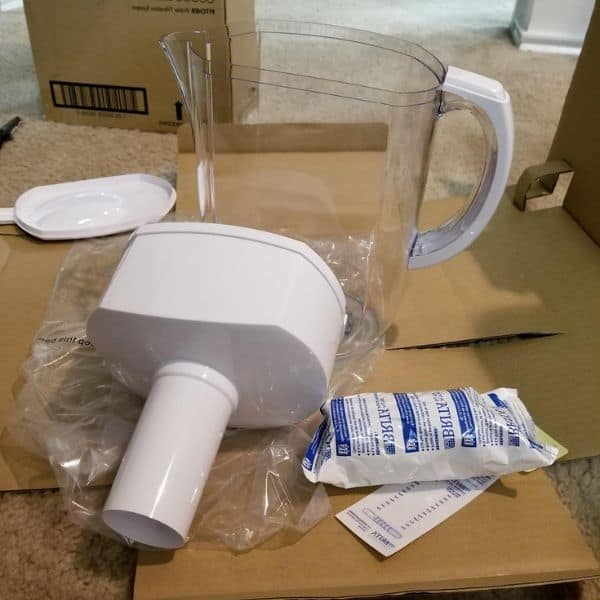
Are Brita Filters Recyclable?
Brita filters are a popular choice for filtering tap water, but what happens to the filter when it needs replacing? Are Brita filters recyclable?
Yes, Brita filters can be recycled – though you’ll need to check with your local recycling center first. If they don’t accept them specifically, they may accept the filter’s packaging.
Recycling a Brita filter must be emptied of all its contents and then placed into the appropriate bin. It’s important to note that Brita filters should never be put in a compost bin as this could contaminate the soil or result in blockages elsewhere.
If your local recycling center doesn’t accept Brita filters, an alternative option is to return them directly to Brita.
Conclusion
A Brita filter’s life depends on how much water it has filtered. Generally, Brita Standard and Brita Stream filters should be replaced every two months. On the other hand, the Brita Elite filter should be replaced every six months.
Follow the manufacturer’s instructions for optimal performance from your Brita filter. Taking proper care of your Brita filter regularly is an easy way to ensure healthy hydration for you and your family.
